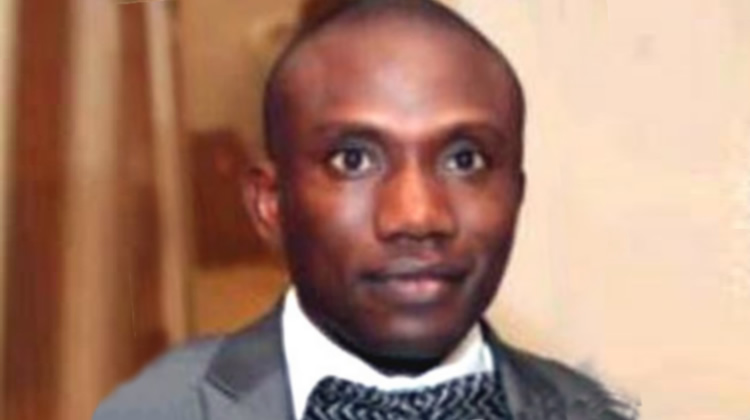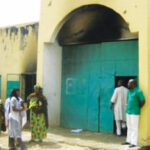
Barely two weeks in the saddle, President Bola Tinubu is showing Nigerians what it means to have a politician who knows the game at the Aso Rock Villa.
For instance, it would be a wonder if the results of the election of principal officials of the National Assembly on Tuesday were anything different. It was clear that nothing could stop the ambition of the four people already anointed by Tinubu and his All Progressives Congress. They already set the stage for a fait accompli by last weekend.
Hear Amobi Ogah, House of Representatives member representing Isuikwuato-Umunneochi Federal Constituency of Abia State, after a meeting with the President last week.
He told newsmen: “Today is my best day. Today, I’m so happy I’m an elected member and seeing my President talking. I’ve never known that this man is so intelligent. I never knew that this man is so prepared to serve this country. I saw the love, character, and charisma — the belief that Nigeria can be a better nation.”
To think that Ogah, elected on the platform of the Labour Party, would be so star-struck and effusive about a President whose victory his party is challenging in court shows the shift in how our politicians operate. It also already indicated that many opposition lawmakers would do Tinubu’s bidding while electing their principal officers.
The thing is, Bola Tinubu knows the game! Unlike his predecessor, who always left things to chance, this President left no stakeholder in doubt about his preference for the four prominent offices in the National Assembly. Even though he strategically avoided a frontal declaration of his bias, he mobilised an army of loyalists in their favour, and went all out for them. His invitation of legislators-elect across party lines before their inauguration is unprecedented. When a President does that, he already worms himself into the hearts of these people and softens the ground for his candidates. A senator suggested that he sneaked out to speak to individual legislators. As former President Clinton was quoted to have once said, “no one says no to Mr President” in those circumstances.
Most significantly, Tinubu did not arm-twist anyone into terminating their ambition to stand against the party’s candidates. His camp tried to persuade the other candidates to see reason. When that didn’t work, they did their homework and waited to conclude the matter on the field. This gave everyone a sense of fair treatment, such that the election and its results bore no resentment. It was the best of democracy at play!
Tinubu has also shown his democratic credentials and preparedness for the job by inviting governors across party lines for discussions. State governments’ performance or non-performance will impact the country’s overall development, and he knows this. Unlike his immediate predecessor, who quoted the constitution when people raised questions about primary education and healthcare, this President understands that Nigerians’ living conditions will not improve unless all tiers of government work together. He also invited traditional rulers and challenged them to collaborate for national progress.
In summary, the President is getting his politics right. The appointments he has made so far appear representative of Nigeria’s sensibilities. For instance, even though those who know would realise that the reasons for the choice of Senator Godswill Akpabio as Senate President go beyond his being a Christian, Tinubu and his party sold the impression that they chose the score of religious balance. It is hard to fault them, despite the feeling that Akpabio does not represent the best the South could offer in some quarters.
We must uphold the importance of such presidential politics at the juncture Nigeria currently finds itself. The country is at its most incohesive, and a leader who wants to make progress must understand that widespread consultations and consensus-building are the only ways to foster the unity of purpose that a diverse country like Nigeria needs.
Tinubu’s large-heartedness is the exact handicap of his immediate predecessor, Muhammadu Buhari. Buhari’s deficient politics accentuated divisions and inspired strife and violence on largely unprecedented scales in the country’s recent history. It is therefore inspiring that the current President is trying to show every part of the country that they matter. Hopefully, as his government settles in, it will initiate a political solution to the agitations in the South-East and other parts of the country.
But politics would certainly not solve all the country’s current problems. The political elite have treated the people so severely that this government must change the pendulum and work towards establishing a caring society where every citizen is influential, where institutions work effectively on behalf of the people, and where poverty is fought and seen to be fought. He must make Nigeria work for the people and get them more interested in their country, unlike the last presidential elections, where less than 30 per cent of registered voters participated.
Tinubu cannot leave Nigerians in doubt as to his readiness to fight corruption. And in fighting corruption, there can be no sacred cows. Many Nigerians do not see the President going all out on this war, but he must, no matter what it costs! The administration justified the removal of subsidies on petrol as a strategy to deal with corruption in the sector. We must show Nigerians that the government is not transferring the responsibility to deal with corruption to the people. His government should strive to bring the country back to a place where the relationship between productivity and reward is clear to everyone.
The President should run an all-inclusive government devoid of some of those old hangers-on who may become albatrosses. He now operates on the national plane and must shun the personalisation of government, where family members and loyalists possessed by a spirit of entitlement impose themselves on the country.
A corollary to avoiding situations where offspring will overreach and declare themselves as the official first daughters or sons of the country is that the President must beware of people who might want to sow seeds of discord between him and his deputy.
Tinubu demonstrated outstanding conviction and courage by choosing Senator Kashim Shettima as Vice President. His decisions gave the impression that he saw a likely partner in the former Borno State governor, who has also exhibited an admirable grasp of Nigeria’s challenges and how to solve them. One would expect that a combination of the brilliance and experience of the two men would produce the renewed hope that they promised.
However, the President’s tenure as governor of Lagos State elicits the need to sound a note of caution. In the eight years, he served Lagos State, Tinubu worked with three deputy governors, none of whom left office because of death or a lack of mental capacity to carry on their duties.
On the two occasions, the deputy governors were impeached in Lagos State for falling out with the governor. Of course, the Lagos State House of Assembly gave reasons for their action. Still, the victims and their supporters also had theories about Tinubu’s alleged highhandedness and what have you.
This is a prospect that Nigeria cannot afford at this time. This is not just because the President must deploy every available resource at his disposal for the urgent task of national revival; any breakdown in the relationship of these men would send ripples across Nigeria. So, for the sake of national cohesion, there cannot be a sign of alienation, not to speak of an altercation between Tinubu and Shettima.
[email protected]





